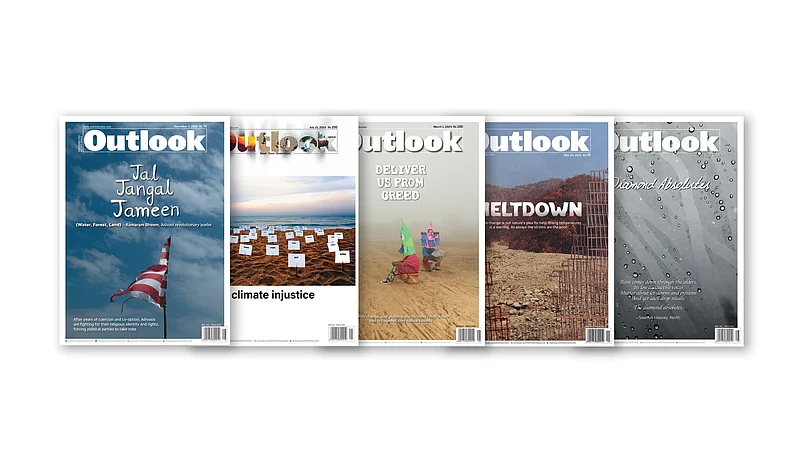A new four-lane highway is being constructed after cutting tens of thousands of trees in the protected Amazon rainforest for the purpose of hosting the COP30 climate summit in Brazil. The irony of this decision is lost on most.
There are always some clichés that make it to the tote bags. ‘There is no planet B.’ But with every passing second, the climate crisis is worsening.
As temperature soars above 50 degrees Celsius in India’s Rajasthan and flash floods in Spain kill 224 people, the world moves farther away from the collective goal set in the Paris Agreement to limit human-caused warming to 1.5 degrees Celsius since pre-industrial times.
Instead, the world is currently on track to warm up by 2.5-2.9 degrees Celsius by the end of the 21st century, as per the United Nations Environment Programme.
Environmental damage emerging from human activity extends far beyond humanity, disrupting ecosystems and endangering all forms of life on Earth.
While Sir David Attenborough - a renowned British broadcaster and natural historian - continues to advocate passionately for the planet’s wildlife, the catastrophic ‘Black Summer’ bushfires in Australia killed, injured or displaced over 60,000 koalas.
Even though anger sweeps over us at the haunting image of turtles ensnared and suffocating on plastic straws, U.S. President Donald Trump - arguably one of the most powerful men on the planet - not only effectively banned paper straws, he also announced withdrawal from the Paris Agreement.
One executive order after another, we edge closer to an irreversible threshold.
India is no stranger to the ongoing tension between development and ecological preservation — a cost that falls more heavily on some than on others.
A nation celebrated for its deep religious and cultural roots, India’s tribal communities have revered forests and trees as sacrosanct since time immemorial.
“To separate the Adivasi from his land is to stop his breathing. If you want to see an Adivasi’s extinction, take him away from his land—as it is happening at present,” said author and tribal activist Ram Dayal Munda.
In 해외카지노 Magazine’s March 1, 2024 issue titled, ‘Adivasi’, we explore the theme of Jal, Jungle, Jameen and the “politics of indigeneity”.
Anisha Reddy writes on the tribals in Andhra-Telangana region who have no place to call home as their houses were razed for the sake of a multi-crore irrigation project.
In 해외카지노 Magazine’s March 1, 2023 titled ‘Deliver Us From Greed’, the Editor-in-Chief Chinki Sinha says, “ How does one begin in the aftermath of another disaster that brings back the trauma and the despair of the disasters one witnessed or was part of, directly or indirectly. Like the earthquakes in Türkiye and Syria that have killed more than 40,000 people. The tremors spread. Into the memory zone. And the old question returns—Why?”
As people are displaced not only by climate disasters but also by flawed planning, Umesh Kumar Ray chronicles the lives of those relentlessly battered by the river and forgotten by the state in Kosi: The Sorrow of Bihar.
“Dheeraj dhariha mangru chacha mann mat kariau malaal,
Samay pavi ke taruwar Foure, jaanaiye sakal jahaan.
(O Uncle, don’t be sad, be patient,
The whole world knows that trees bear fruit in their own time)”
Rain - once a symbol of renewal and relief - now batters relentlessly, felling trees and tearing through ceilings alike.
In the 해외카지노 Magazine issue dated July 18, 2022, ‘Diamond Absolutes’ we look at monsoon-triggered floods that kill hundreds of people each year.
In ‘Rains Are Different For Those Who Experience It, And For Those Who Observe It’, Suraj Yengde writes about Nazima, who even though had never seen such floods, her mother said that it’s the third time in 18 years the Kopili River, a major tributary of the Brahmaputra, has washed away their house.
While humanity looks to the stars in search of life on other planets, it neglects the one home it already has — where glaciers are vanishing, microplastics reach the lungs of infants and coral reefs alike, and renewable energy is treated more as a token gesture than a necessity.
This is a war we wage against ourselves.















